- JAPANESE
- LANGUAGE
X
 THAT IS GOOD
THAT IS GOOD
There were many soldiers at the airport. From Cancun, Mexico, I headed to Cuba.
First time in a socialist country. And my first “official” overseas recording.
The reason why I say officially goes back to Morocco, which I visited in 2000.
The goal is music. And my greatest desire is to experience the music of Jajouka in person. Even though I didn’t achieve my highest hopes, I still had many great musical experiences, and among them, how excited I was when I came across a band in the Jemaa el-Fnaa in the city of Marrakech that played Gnawa music, which I had wanted to hear live as well as Jajuka!
But the man who danced acrobatically with bells on his hat, a musically important part of the group, came running towards me from the performance area, which was at least 30 meters away, and said, “Give me money if you want to record it.”
For a moment, I was taken aback by the momentum and sharpness of his eyes as he pushed his way through the crowds in the vast Jemaa el-Fnaa, but then I said, “I’m recording with this (DAT) recorder, but I’m recording the crowded streets, not just your performance.” When I replied, he walked away from me rather easily.
I had been doing so-called field recording (recording environmental sounds) in various places. However, after this experience, I began to have a strong desire to make direct recordings with local performers ( by paying for them).
And then Cuba in 2003. A sudden hardship at Havana airport.
Equipment confiscated.
An official in a military uniform said, “If you want to sell it, leave the money here.”
The equipment (audio interface), which cost nearly 200,000 yen and was the very heart of the recording process, was put on hold until I returned to Japan.
Two days later, my wallet (including my credit card and driver’s license) was picked from me, and my first overseas recording session started in a very bad way.
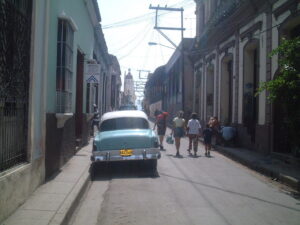
I felt great in a way, by the way, until I realized that I had slipped my wallet.
Under the starry sky, I happened to be at an African festival in Santiago de Cuba, which is like Osaka if Havana is Tokyo , and it was a lot of fun, partly because there were many African people there. At the end of the festival, there was a big dance party with a live salsa band (almost 1,000 people!), which made me feel very close to Africa, which is still far away in my mind.
I had danced a little salsa at Catalyst in Shinjuku, so I had the misfortune of dancing with a local girl…
By the time the performance was over, the wallet I had in my pocket was gone. That was the end of it…
The next day, I really went nuts. I had over 100,000 yen in cash in my wallet (1,000,000 yen locally), no credit card and no way to withdraw money, and I was in Cuba.
How am I supposed to negotiate a recording, and how am I supposed to schedule it for almost three weeks…?
I started planning this trip with my friend Izpon, who has been living in Havana for several years as a taiko practitioner and has almost mastered Spanish, and as a result, I had to rely on him to save me until I returned home and sent the money.
What you have is a friend.
Without his help, the subsequent flow of Crosspoint might not have been possible. Thank you again.
Here is the first Crosspoint album (2005)
https://crosspointproception.bandcamp.com/album/momentos
Anyway, being penniless, not being able to communicate in English, and with limited communication, my mind was (or had to be) destroyed and I reached a point where I had nothing to lose, which in a way was a good experience. Even if you are walking through a strange city in the middle of the night, if you lose your fear, they will become less cautious. Fear and anxiety can sometimes be a tricky thing to deal with in a journey.
Its name is *”Gishin Anki(疑心暗鬼)”. It interrupts our journey in our consciousness.
*Gishin Anki is a japanese proverb and it means once you suspect something, everything else look suspicious
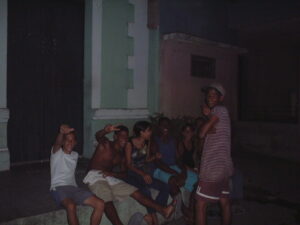
Even if you feel that things have gotten worse, from a little higher up, from the future, you feel that the problem is not a big deal.
In fact, I can totally laugh about this time now.
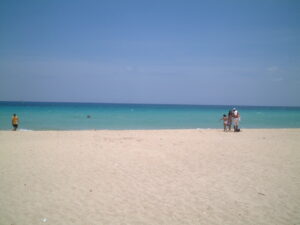
After that, the recording became a completely low-budget program, and was done in places like Internet cafes and community halls, where there was no need to pay for space. It was a good opportunity to feel the life of ordinary people.
The common people in Cuba (or rather, all the common people in terms of ideology) all live day to day with salt and minimal foodstuff rationed by the government. Opportunities to earn foreign currency are few and far between for the common people, and the girls want to get out of such a pimply old Cuba, so when they see a foreigner, they try to project their ambitions onto the life beyond that person.
These phenomena or situations were also present in many of the countries I visited afterwards, especially in Cuba, a socialist country with no money or goods anyway, which was very unique.
I think it was a world that I could not have seen if I had only visited as a tourist.

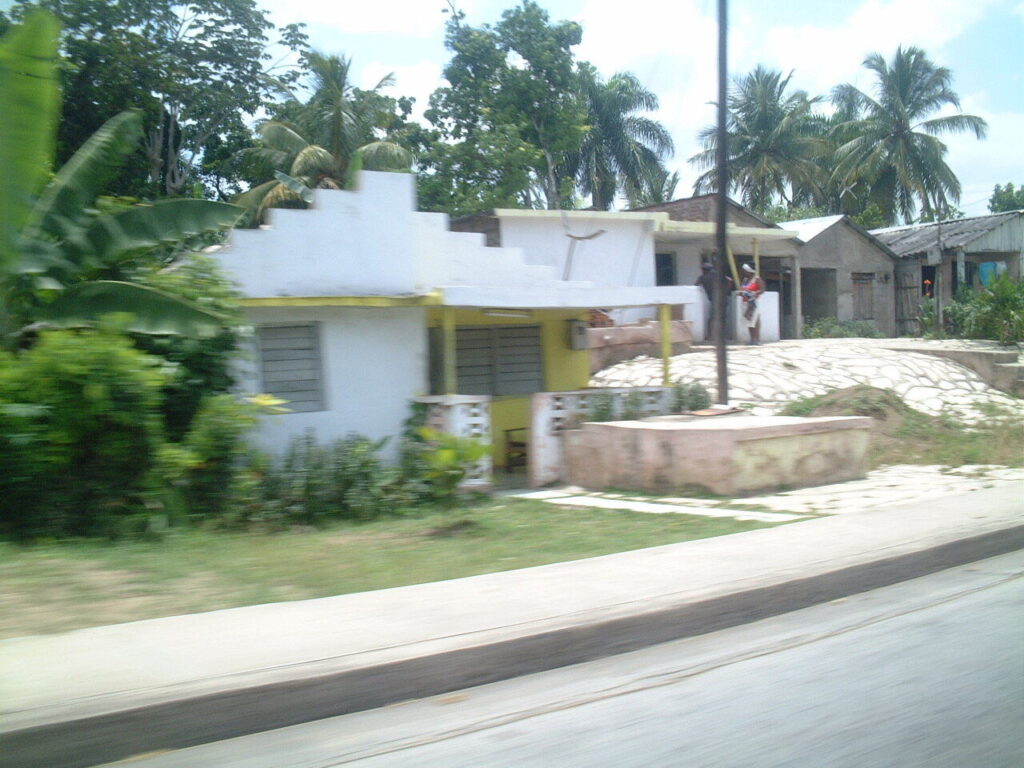
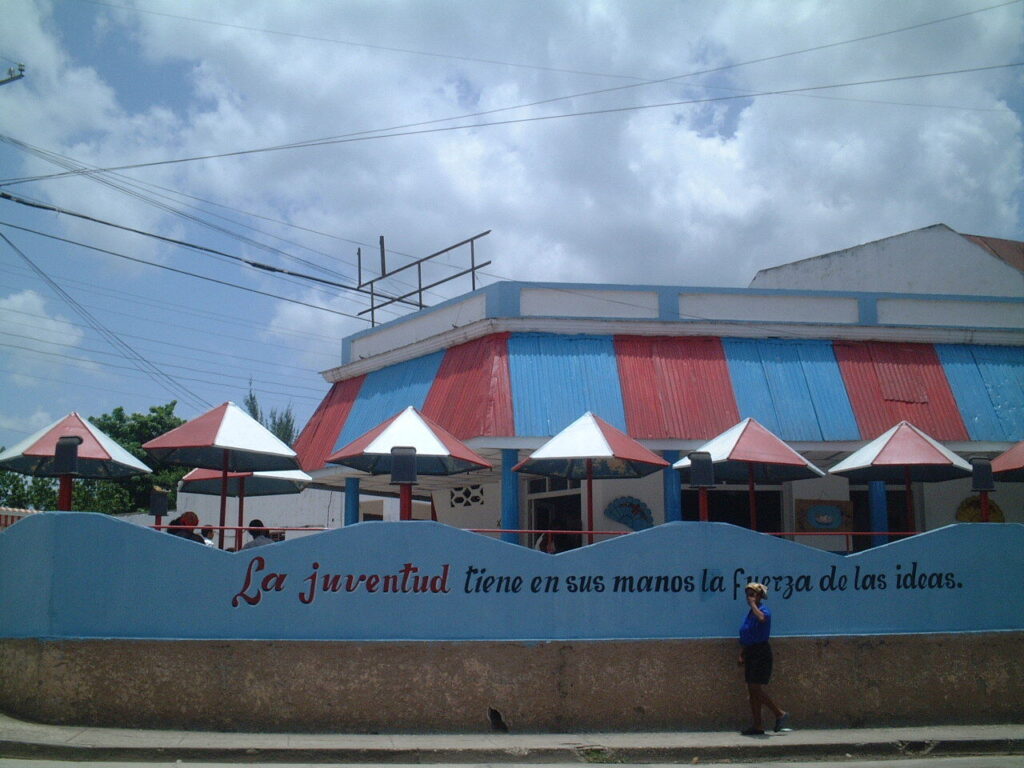
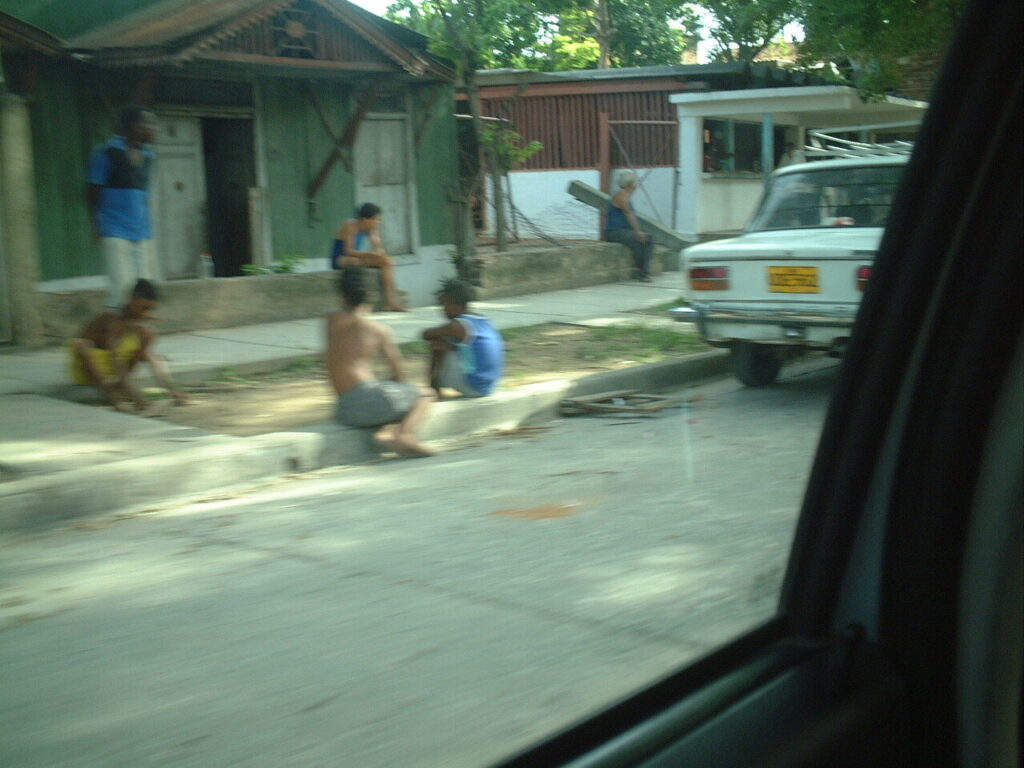
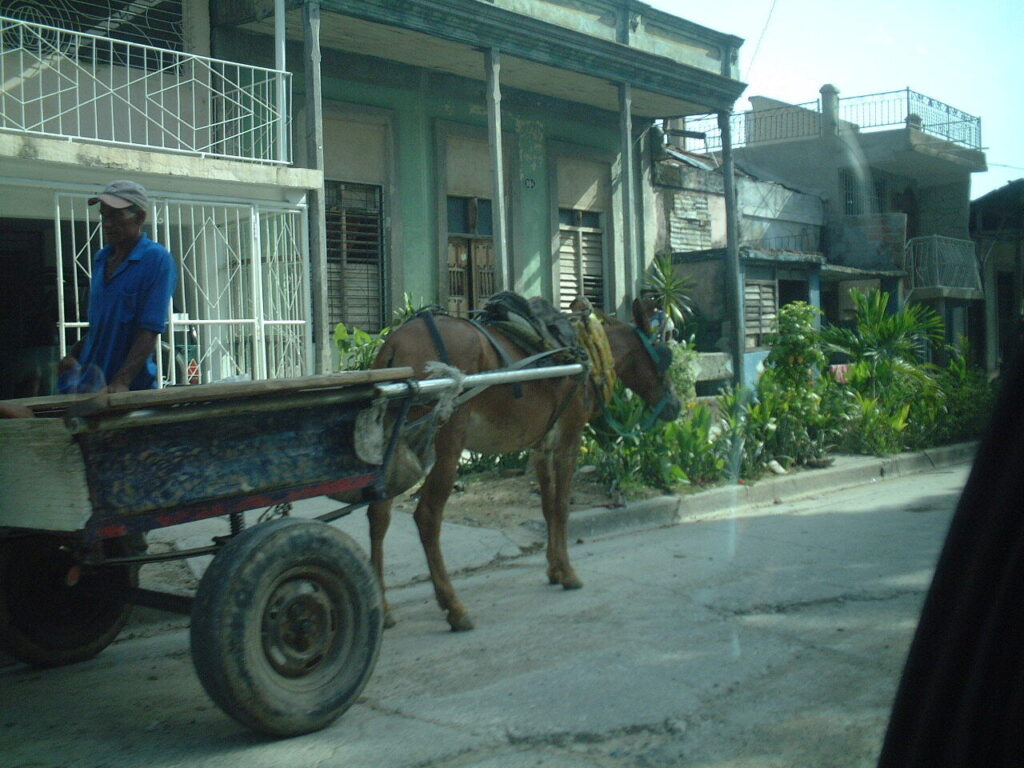
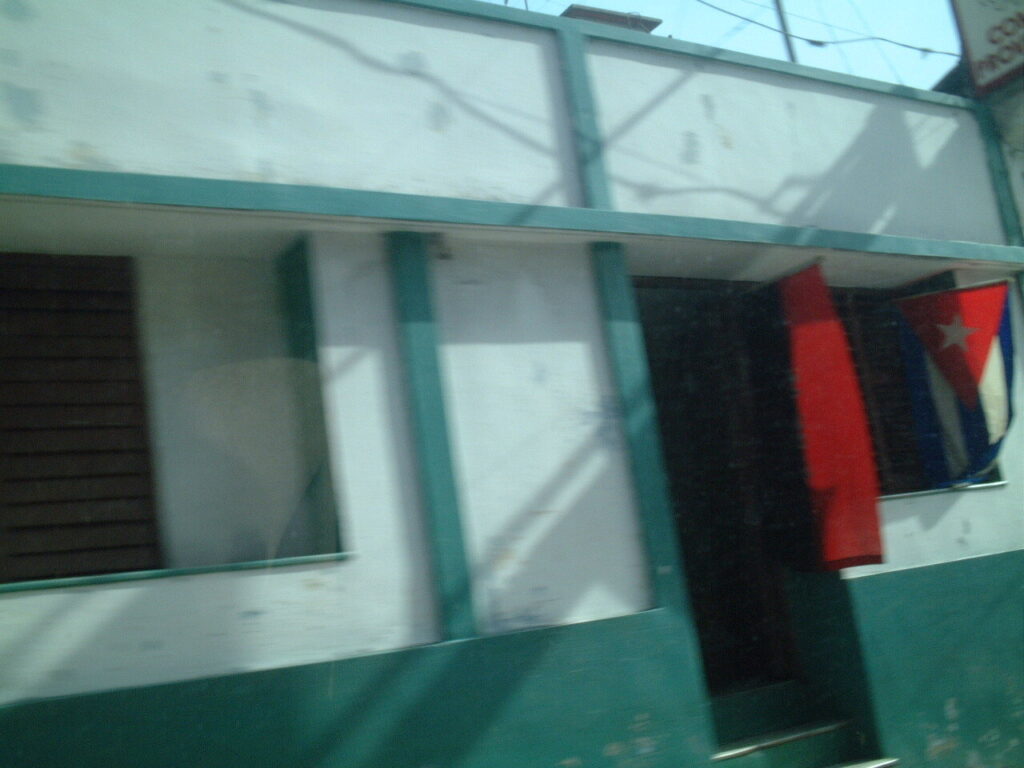
In terms of music, instead of hiring professional musicians in a good studio with a record company and sponsors (I think the level and quality of Cuban music is unique), I met with musicians who were connected to me through some kind of connections, discussed where to record, and did a DIY project with minimal equipment, which became a good lesson and idea for my subsequent recording travel style.
For example, I learned that even a mere (sorry) microphone stand is not available everywhere like in Tokyo, and that the voltage difference is divided by area depending on the country’s colonial policy… I was able to learn more about the music equipment and the situation in the country.
I didn’t really study the origins of Cuba before entering the country, I just read a guide briefly and jumped into the local life without any preconceptions, gradually understanding the situation on the spot. This also became my style afterwards (though it may have been laziness).
It is up to each person to decide whether the information in the guidebook can really get you where you need to go, but in any case, intuition and a strong will can pave the way. Life is in the bushes. Avoid useless information, sometimes knock it down, and push forward toward the light that only you can faintly see. Even if dark clouds are looming.
The place where you were born and raised is not the only “world”.
The first shocking person I met on this sound-driven journey was Eudis, a musician who lives in Guantanamo, a city with a US military base for some reason.
I met him through my contacts at the music school Izpon attends, explained the situation, and was immediately taken to the club where he usually plays.


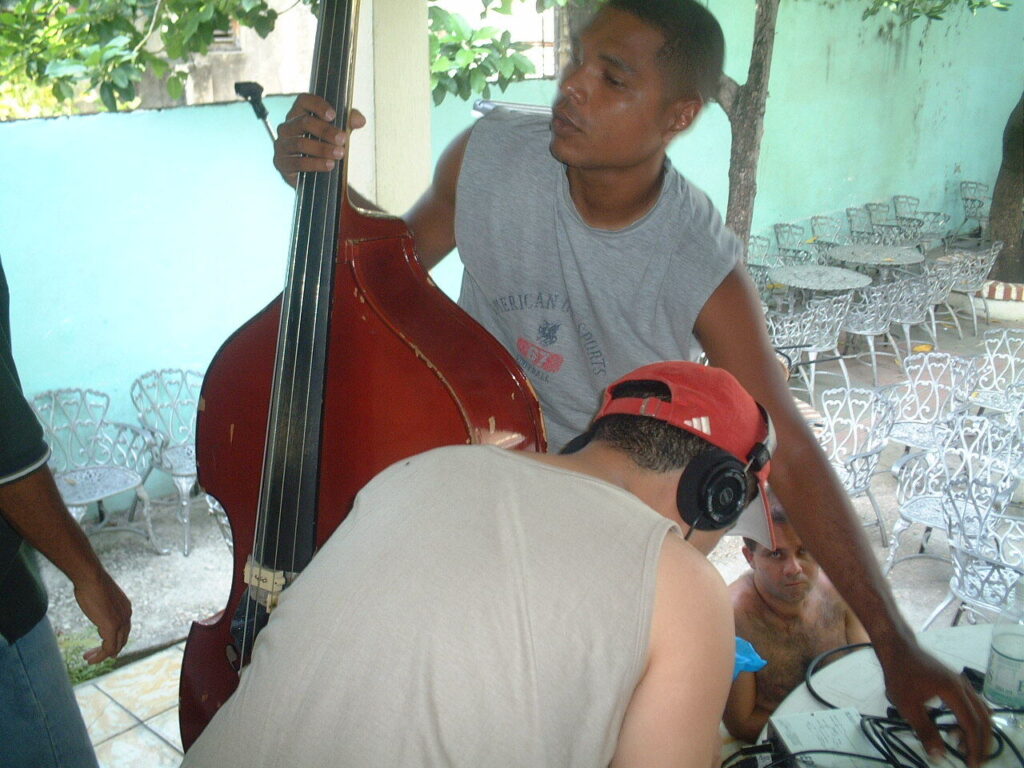
But there was too much noise, so we all moved to a nearby community center again with our instruments and equipment.
There was a great atmosphere and sound.
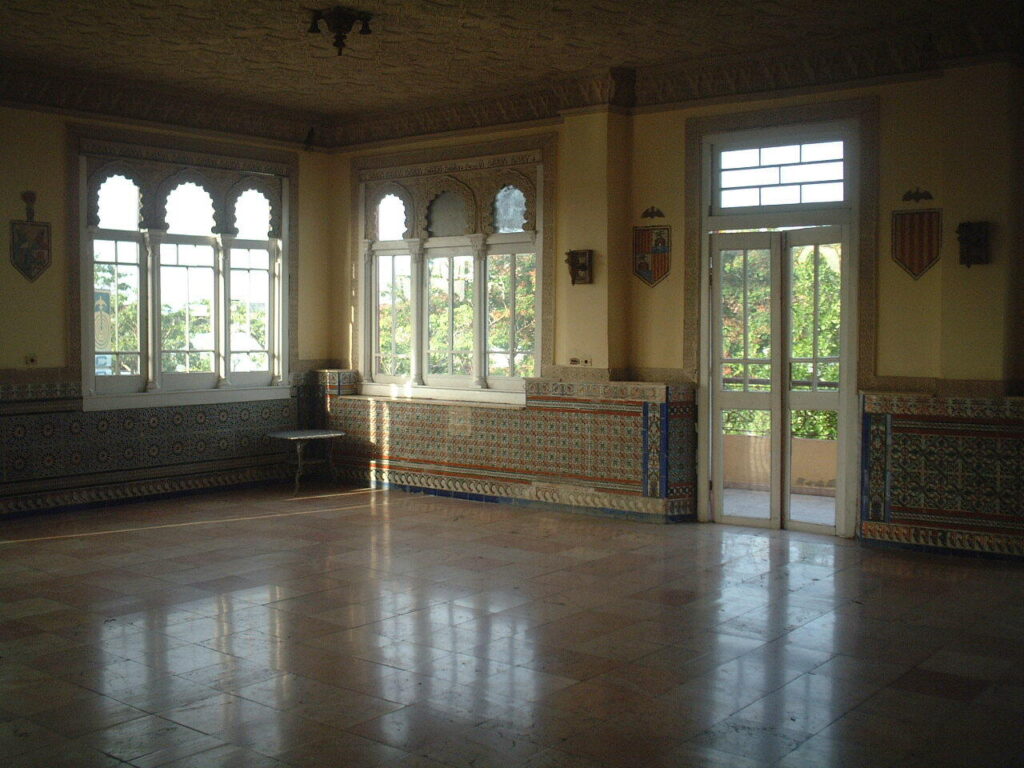
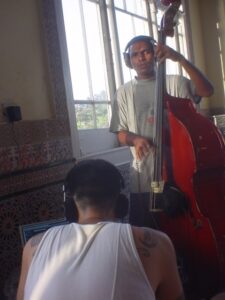
Cuba is still famous for its old cars driving around the streets, but everything else is also classic, or old. Back in 2003, no one had cell phones, and the locals, for better or worse, were in a state of isolation, cut off from the rest of the world except for those involved in tourism, which required them to be “up to date” all the time.
It makes a huge difference to the capitalist society we live in. Things are limited, you can’t buy them right away, you have to make do with what you have.
Cuban music has a simplicity to it. And yet, it is very sophisticated. I think there are certain trends, but musicians can continue to play even when they are old because society accepts that they should continue to polish their old style of playing. They are not disposable.
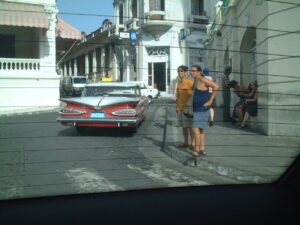
When you come to Cuba and learn about the realities of a communist society, you realize how harshly competitive the society you live in, which is the opposite of the communist society.
There are no homeless people in Cuba, unless they are monomaniacs or lunatics. Of course, Cuba is not a perfect society either, as you can hear from the many people I met on this trip who were venting their frustrations about their country. But the society we live in is seemingly glamorous and full of goods. If you have money, you can get a lot. As long as you have money…
Back to the topic at hand, Eudis listened to the rough sketch I’d made with his headphones and started to play the bass guitar he’d brought with him.
A vivid sound is added to the zany world. I recorded 4-5 songs one after another.
Then Eudis suggested that we put a piano over it.
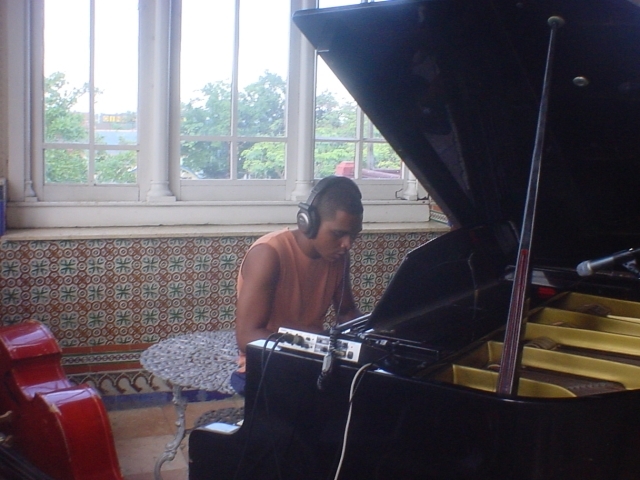
As I was recording the piano for the first time, I realized my lack of knowledge and equipment (I brought only 58 dynamic microphones and no condenser microphones, which was painful), but when I looked at the piano, there were about four white keys that had fallen down and had not come back up.
I point to it and ask, “Are you okay with that?”, and he said, “No problem.” He avoided that key that didn’t come up, and hit the phrase.
I still think how cool it was.
Don’t blame someone, something, or a situation for your performance. Make the best out of a situation.
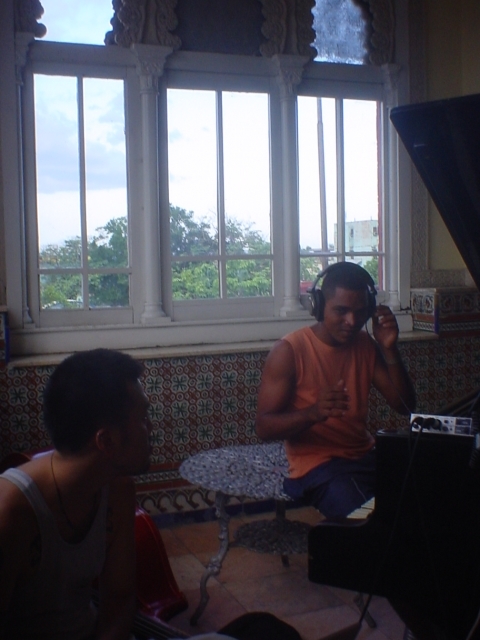
Anyway, I was impressed by his performance. We recorded over two days, and after the first day’s recording, we went to one of the only two or three bars in Guantanamo, and drank beer and talked in each other’s poor English, and he said to me, “Your music is beautiful.”
Until then, I had been described as intense, heavy, and deep, but I had never been called beautiful. That was also a shock, but he told me that he felt something close to Sting (I was afraid), and when I asked him what kind of music he listens to and likes on the other hand, he said he likes Keith Jarrett.
The name was unexpected, but he had his own theory: imagination is the key to playing all instruments. With the limited variety of instruments available, it was the only way to overtake the older musicians. It is also important to keep practicing in order to train your body to control your imagination.
We were both born and raised in completely different environments, but from the music in our headphones, we felt something definite and began to share it.
The next day, I went to his house and was astonished to find that his songs made with the so-called all-in-one synth sounded like Mono Fontana.
I was again convinced that it’s not about the equipment, it’s about the creativity.
The song he wrote for his then estranged child is included at the end of this album.
https://crosspointproception.bandcamp.com/album/re-momentos-memories
Society changes from country to country, but people themselves do not change much.
That’s why his performance is so touching.
This conviction also became the spiritual foundation for my subsequent visits to many countries.
After only a week or so, something in me definitely started to change.
However, the journey has just begun.
<To be continued.>
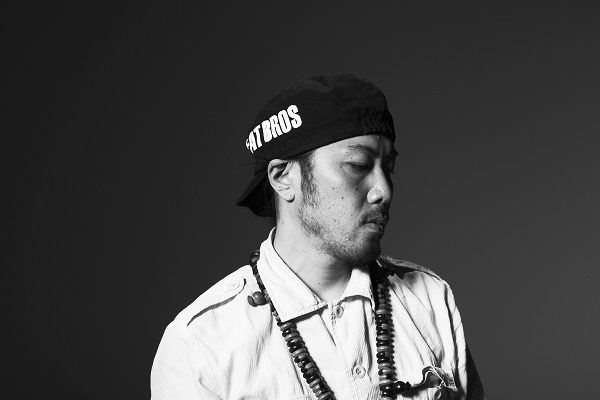
J.A.K.A.M. (JUZU a.k.a. MOOCHY / NXS /CROSSPOINT)
http://www.nxs.jp/
soundcloud / Bandcamp / Twitter / Facebook
Born in Tokyo, he started playing in bands and DJing at the same time when he was 15. As a DJ, his innovative and original style has taken the world by storm, and his activities have quickly expanded from huge festivals to underground parties both in Japan and abroad. In 2003, he went on a recording tour with local musicians in Cuba. In 2003, he went on a recording tour with local musicians in Cuba, and since then he has been recording all over the world, and started his own label, Crosspoint, as a new guideline for world music.
In addition to music production, he also produces video works, picture books and art books, and organized the outdoor festival “Jomon and Rebirth” in 2012. In 2017, he released HIGHTIME Inc. with DJ Tasaka, and in 2018, he released ZERO with MACKA-CHIN of NitroMicrophoneUnderground and MaL of PART2 STYLE. In 2018, he also started the unit ZEN RYDAZ with MACKA-CHIN of NitroMicrophoneUnderground and MaL of PART2STYLE.
In the same year, his music under the name of J.A.K.A.M. was released in analog form on the French label HardFist, which led to a live performance at the huge 30,000-person Nuits Sonores Festival, followed by a DJ tour of Europe and Israel. In 2019, the production of MYSTICS, a unit with Marcus Henriksson and Kuniyuki of the internationally popular Minilogue/Son Kite, began, and this year, 2021, the long-awaited album will be released. His original vision is spreading all over the world, crossing all genres.
He has been behind the decks at home and abroad with:
Acid Arab (FR) / Adam Ffreeland (UK) / Alex Patterson (The Orb, UK) Andy Baz (Background Records, Germany) / Asaf Sammuel (islael) / Dego (4Hero, UK) / Fabio (UK) / Francois K (NY) / Fred P(NY) / Foolish Felix (UK) / Grooverider (UK) / I.G.Culture (People, UK) / Jeff Mills (Chicago) / Joe Claussell (NY) Nick the Record (UK) / Moodyman (Detroit) / Panasea (Germany) PHOTEK (UK) / Storm(MetalHeadz, UK) / Suv (Fullcycle, UK) / Q-Bert & Inbisibl Skratch Piklz, Mix Master Mike with D-Styles, Yogafrog and Shortcut (US) / Theo Parrish(Detroit) / Terre Thaemlitz (US/JPN) / Tom Wieland (Vienna) /DJ KRUSH (JP) / Flying Lotus(US)/ / Boredoms (JP) / FAUST (Germany) / Dennis Bovell(UK) / Dillinger Escape Plan (NY) / Juno Reacter (UK) /Lee Perry (Jamaica) / LKJ (UK) / Lake Trout (US) / Mad Proffesor (UK) / Mala (UK) / Marcus Henriksson(SW) / Meat Beat Manifesto (UK) / Merzbow , MMW (US)/ Yakaza Ensemble(Turkey) etc. His style keeps evolving and defies categorization.